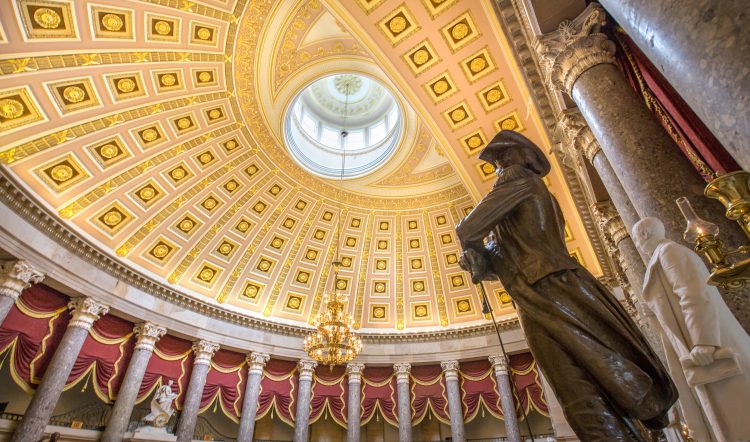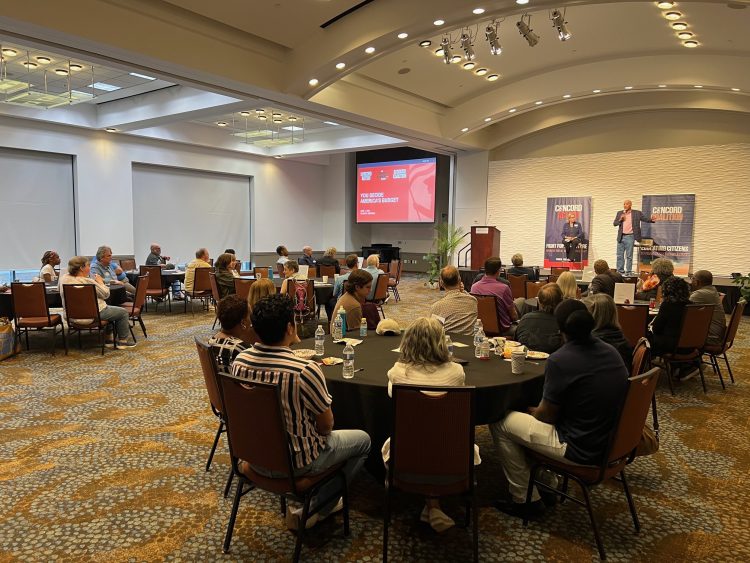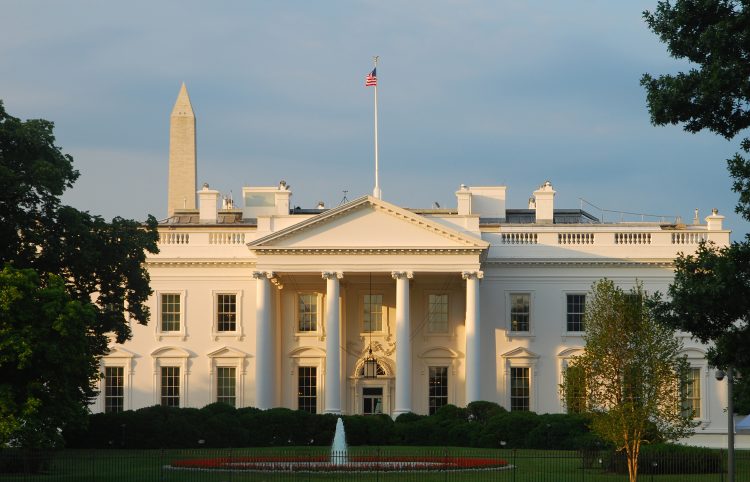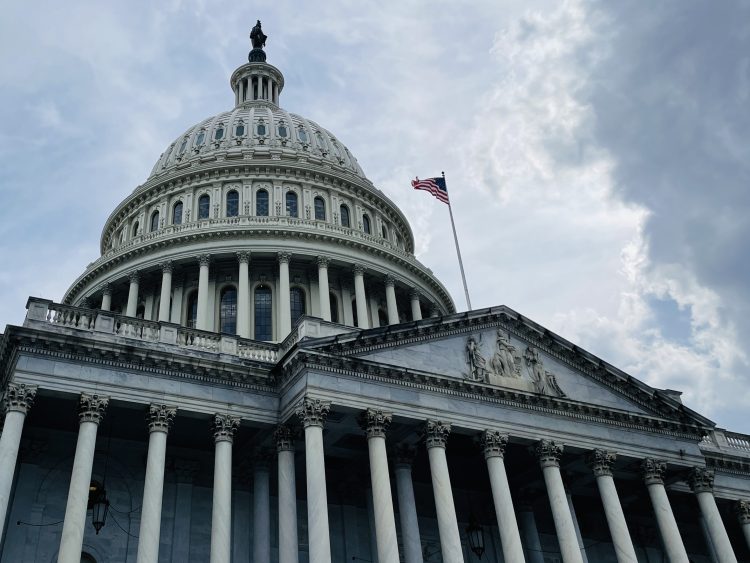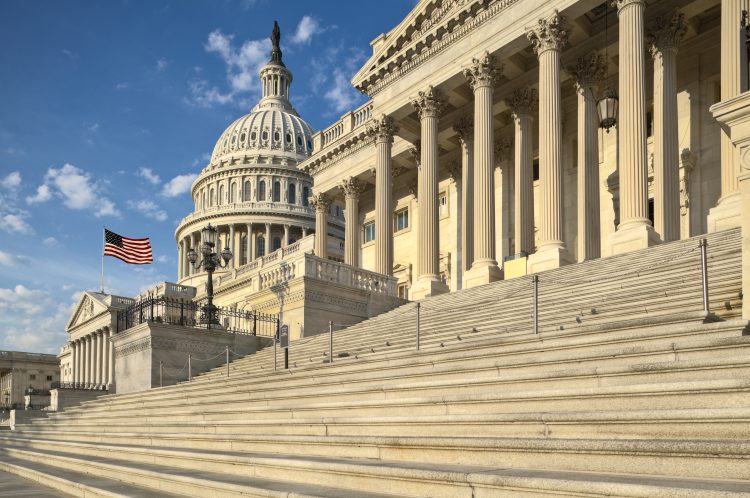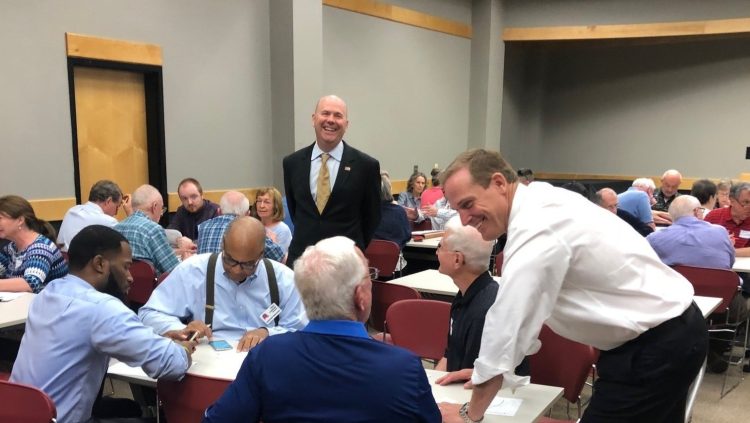By Bob Bixby, Host, Facing the Future
Click here to listen to the episode now
This week on Facing the Future, the guest was Bill Hoagland, Senior Vice President at the Bipartisan Policy Center. Hoagland spent 33 years grinding through the budget process on Capitol Hill, where he served as the Republican staff director of the Senate Budget Committee from 1982 to 2003. He walked us through the challenges facing the One Big Beautiful Bill Act as it is taken up by the Senate.
“There are a number of issues that the Senate has with the bill,” Hoagland said, “and they will work their way through it. This is going to be a struggle because Majority Leader Thune doesn’t have a lot of votes to spare, just like the House passed their bill by only one vote.”
Among the issues Hoagland flagged from the House bill that could cause problems in the Senate are the repeal of energy tax credits, an upward adjustment to the State and Local Tax Deduction (SALT), and whether Medicaid cuts would harm rural hospitals.
He also noted a new development. “There is a movement in the Senate to say, ‘We’re putting all this pressure on the Medicaid program. Maybe we should look at the Medicare program also.’ The President said Medicare is off the table, but that doesn’t mean that the Senate isn’t looking for ways to find waste, fraud and abuse. Maybe there are some savings to be achieved in the Medicare program and particularly changes in Medicare Advantage. There are some estimates that suggest Medicare Advantage pays similar kinds of individuals, compared to traditional Medicare, nearly 22 percent more in terms of the benefit. That’s not the way the Medicare Advantage program was supposed to work. So I think the Senate is starting to look at that particular provision or look at bringing Medicare into the discussion.”
Hoagland observed that financial market concerns about the growing U.S debt may begin to have an effect on the budget. “What we’ve been seeing is a flight away from Treasuries to other forms of securities. Today, 30 percent of our debt is owned, not by Americans, but by foreign investors. If those foreign investors decide to move away from Treasuries, and we still have this growing debt, then what it means is that American investors will have to belly up to the bar. There will have to be an increase in interest rates to attract them into purchasing our debt.”
“One of the factors that concerns me,” Hoagland continued, “is that we are seeing those 10-year rates up around 4 to 4.5 percent. If you take all the estimates we have today, they assume that the 10-year T-bill rate will average somewhere around 3.8 percent over the next decade. We’re already at 4.5 percent. Yesterday, I used the Yale Budget Lab’s estimates of the increases in the 10-year rate, and plugged that into an interactive model that CBO provides, and you add almost another $1.5 trillion just in interest payments over the next decade.That is what’s starting to sink in. I’m afraid we’re losing that special nature of safety, as reflected in the downgrades that we are starting to see. This is not normal and not good.”
Hoagland is glad to see the Administration using the rescission process set out in the Impoundment Control Act (ICA), but he speculated that if the President’s current $9.4 billion rescissions request is not approved by Congress, it will encourage some in the Administration to argue that the ICA is unconstitutional and that the President can impound (refuse to spend) whatever he wants, regardless of Congressional appropriations.
“It seems to me that the Impoundment Control Act is pretty clear. It’s had its test, and I believe it is constitutional. And that’s why I am happy that they’re following the procedures for a rescission. But I don’t think it’s for the purposes of what I would like to see; to follow the law. I think it’s for alternative reasons to somehow put this all back into the courts in terms of whether it’s constitutional or not,” he said.
Hoagland had a warning about where fiscal policy is heading. “There’s no way of getting around the fact that we are in a fiscal situation that requires very, very tough decisions, and as one of my old friends, Leon Panetta, likes to say there are two ways things get done in this town. One is by leadership, and one is by crisis. We don’t have the leadership that we need, I say this both for Democrats and Republicans, and so we are headed toward a crisis.”
Hear more on Facing the Future. Concord Coalition Senior Advisor Bob Bixby hosts the program each week on WKXL in Concord N.H., and it is also available via podcast. Join us as The Concord Coalition team discusses issues relating to national fiscal policy with budget experts, industry leaders, and elected officials. Past broadcasts are available here. You can subscribe to the podcast on Spotify, Pandora, iTunes, Google Podcasts, Stitcher, or with an RSS feed. Follow Facing the Future on Facebook, and watch videos from past episodes on The Concord Coalition YouTube channel.
Continue Reading
